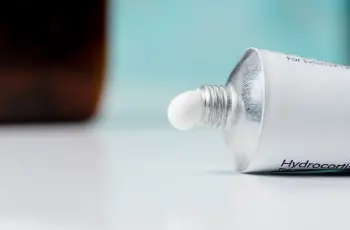
Sunscreen is a vital tool in protecting our skin from the harmful effects of the sun’s ultraviolet (UV) rays. However, it’s not uncommon for various myths and misconceptions to circulate around the topic of sunscreens. To help you navigate through the sunscreen maze, let’s shed some light on the most common sunscreen myths and present the facts supported by scientific research. By separating fact from fiction, we can make informed decisions about sun protection and ensure the health and well-being of our skin. So, let’s dive in and discover the truth behind sunscreen 12 myths versus the evidence-based facts.
1 | Myth – Sunscreen is only needed in summer and isn’t necessary if you stay indoors or during cloudy days
👉Fact: UV rays are present year-round and can penetrate clouds and windows (up to 80% can penetrate through clouds). Broad-spectrum sunscreen daily use is recommended to protect the skin against UVB (burning) rays and UVA rays (ageing, oxidative stress, and skin damage).
2 | Myth – Darker skin tones don’t need sunscreen
👉Fact: Although higher melanin levels provide some natural protection, all skin tones are susceptible to sun damage and should use sunscreen regularly. Fair-skinned and red-haired people need to protect themselves more.
3 | Myth – Sunscreen causes vitamin D deficiency
👉Fact: Sunscreen use does not cause Vitamin D deficiency, because Vitamin D intake from sun exposure alone is not enough for the daily required dose. Only when the UV Index is 3 or above (such as during summer), most people maintain adequate vitamin D levels with a daily exposure of 10 to 30 minutes.
4 | Myth – Waterproof sunscreens are effective all-day
👉Fact: No sunscreen is entirely waterproof or sweatproof. It’s essential to reapply sunscreen every two/three hours, especially after swimming or sweating.
5 | Myth – Oral Sunscreen pills can protect from UV rays
👉Fact: Oral sunblock can’t replace a topical sunscreen, rather boost the protection against harmful UV of your sunscreen by limiting oxidative damage from the inside. Oral sunblock usually contains strong antioxidants that can reduce free radicals.
6 | Myth – All sunscreen ingredients are harmful to coral reefs
👉Fact: Not all ingredients are bad for the environment. Some chemical sunscreens ingredients like oxybenzone and octinoxate can contribute to coral bleaching and interfere with the food chain of marine ecosystems. Opt for reef-safe sunscreens with alternative ingredients such as Zinc Oxide and Titanium oxide.
7 | Myth – Applying a high SPF sunscreen means you can stay out in the sun longer
👉Fact: SPF measures protection against UVB rays (and not UVA rays as well), not the duration of sun exposure. Regardless of SPF, regular reapplication every 2/3 hours is recommended.
8 | Myth – Just a high SPF makes a good sunscreen
👉Fact: SPF shields only UVB rays, while you must also shield UVAs. A good sunscreen is broad-spectrum and combines filters for all UV rays. Look for SPF and PA ratings. A good option is SPF 50 + PA +++
9 | Myth – Nano particles are bad
👉Fact: Nanoparticles (i.e. ‘micronized zinc oxide’ on the labels) are smaller than 100 nanometers, so recent research has shown that the skin’s stratum corneum prevents transdermal absorption.
10 | Myth – Zinc oxide causes white cast
👉Fact: The white cast effect of a sunscreen is caused by non nano zinc oxide, as the particles stick onto dry patches of the skin, especially when it is not properly hydrated and moisturized. A good sunscreen formula with hydrating and moisturizing ingredients prevents the dreaded white cast effect.
11 | Myth – Using expired sunscreen is still ok
👉Fact: Sunscreens are lotions that expire like every other skincare products. Expired sunscreen may lose its effectiveness and fail to provide adequate UV protection. It’s best to discard and replace expired sunscreen to ensure proper sun protection.
12 | Myth – Sunscreens with mosquito repellant are good
👉Fact: When sunscreens are formulated with mosquito repellant like Deet (N,N-Diethyl-m-toluamide), their efficacy is significantly diminished – sometimes by more than 30 %. Plus, you may increase the chance of skin irritation.


